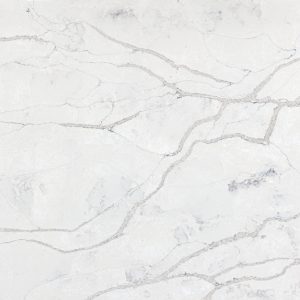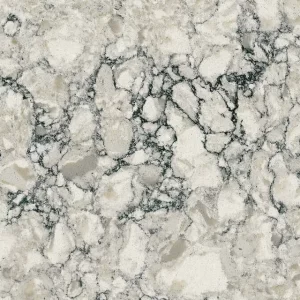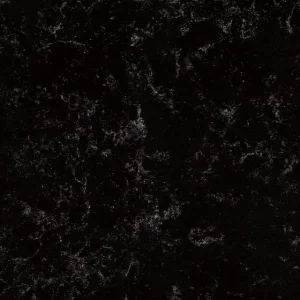Quartz is a stunningly robust engineered stone virtually free of maintenance requirements, presenting an immaculate surface resistant to scratches and etches. Notably characterized by its minimalistic design movement and elegant patterns, Quartz offers various colors, from crisp whites and neutral greys to a vibrant palette of earthy tones. With unmatched performance in durability and aesthetic flexibility, Quartz countertops are modern classics that stand out in any space, embodying sophistication and practicality.
An Overview: The Pros, The Cons, and Everything in Between
In the quest for the ideal kitchen countertop, you might have come across quartz as a prominent contender. Quartz, an engineered stone, has risen to fame for its captivating look and enduring qualities, sparking curiosity among homeowners and designers alike. If you’re pondering what precisely quartz is, how it compares with other countertop materials, and the pros and cons it brings to the table, look no further. Below, we illuminate all aspects of quartz countertops for your understanding.
The Pros of Quartz Countertops
Quartz countertops are a splendid pick for various spaces due to their blend of durability and visual appeal. Here’s a glimpse of why they stand out:
- Durability: Quartz is remarkably resistant to scratches and stains, making it more resilient than many natural stones, which is ideal for bustling areas like kitchens.
- Ease of Maintenance: These countertops are simple to clean. With their non-porous surface, spills and dirt are easily wiped away, and they are also resistant to heat.
- Low Maintenance: Quartz countertops demand minimal maintenance, unlike materials that need regular sealing.
- Eco-Friendly: Produced with a combination of natural quartz and resins, these countertops are sustainable, contributing to a greener planet.
- Versatility: Available in a spectrum of colors, patterns, and textures, quartz countertops offer abundant options for every aesthetic preference.
The Cons of Quartz Countertops
While quartz countertops boast various advantages, there are also considerations to bear in mind:
- Cost: Generally, quartz countertops might be more expensive compared to basic tile or laminate options.
- Sunlight Sensitivity: Prolonged exposure to direct sunlight may lead to discoloration over time.
- Seams Visibility: For larger countertop designs, seams might be visible where the quartz slabs are joined.
Unique Qualities of Quartz
Quartz countertops possess a set of distinct attributes, making them an excellent choice for various projects:
- Strength: With a substantial hardness level, quartz is highly resistant to scratches, chipping, and is non-porous, resisting stains effectively.
- Variety: The engineered stone offers a broad range of colors and patterns, from neutrals to vibrant hues, ensuring a perfect match for various home styles.
- Consistency: Thanks to its manufacturing process, quartz provides more color consistency than natural stone, giving a uniform appearance.
- Maintenance: Quartz requires minimal care, needing no sealing or special treatments to maintain its luster and beauty.
- Heat Resistance: While it’s resistant to heat, using trivets or heat pads is recommended to prevent potential damage from hot pots and pans.
Caring for Your Quartz Countertop
Ensuring your quartz countertop maintains its beauty is straightforward:
- Clean with warm water and mild detergent using a soft cloth, avoiding harsh chemicals.
- While quartz is heat-resistant, it’s advisable to use trivets to prevent potential damage from hot items.
- Though quartz doesn’t require sealing, using cutting boards is recommended to prevent potential scratching.
In Conclusion
Quartz countertops are not only robust but also offer a sophisticated look to any space. By following simple care routines, you can ensure your investment retains its allure and functionality for years, making it a worthy addition to your home or commercial space.

































































